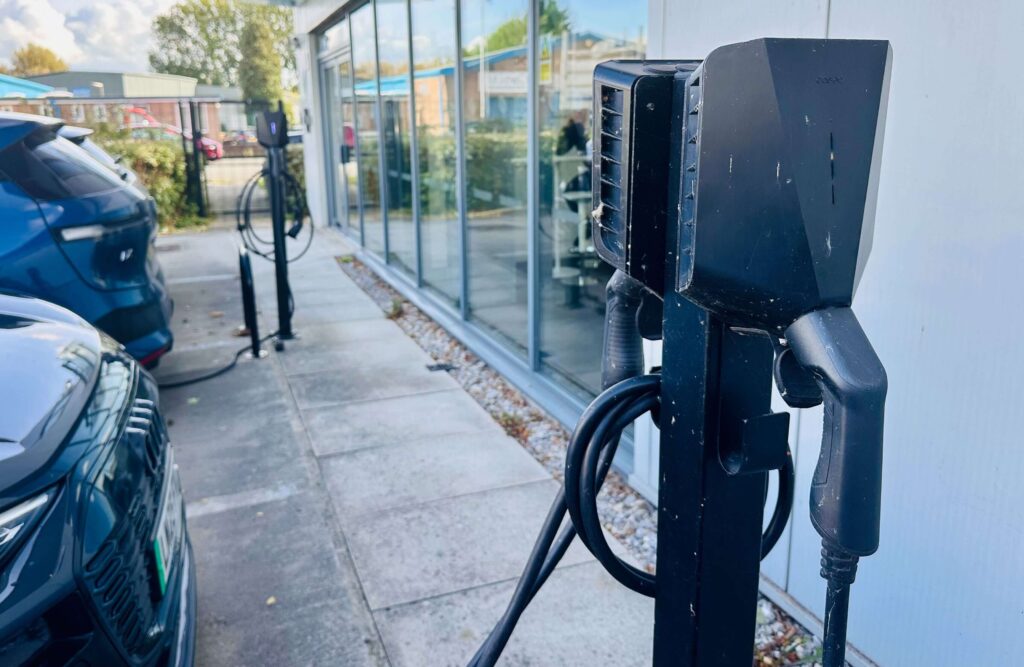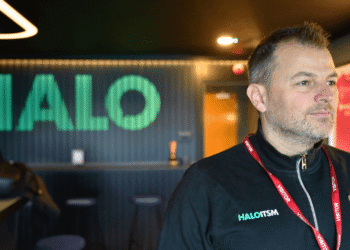Immersion cooling is “really at the early days” of adoption, an exec of a fast-growing systems integrator has acknowledged after bringing the cutting-edge green cooling technique to a UK university.
Vespertec has deployed an immersion cooling solution from Midas Immersion Cooling at Durham University.
Held up for being at the cutting edge of sustainable datacentre innovation, immersion cooling is designed to offer a more energy-efficient and high-performance cooling solution compared with traditional air-based systems.
“Definitely a mental change”
But talking to IT Channel Oxygen, Vespertec Alliances Director Scott Constable said the jury is currently out on its adoption trajectory.
“I think it’s a pretty wise choice personally, but you have conversations with different people and they’ve already got an opinion that maybe stops them from testing it,” he said.
“The more I learn about it and the more we put it in, the more I realise this is a really viable solution going forward.
“But it’s definitely a mental change as to how to operate a datacentre – and I can say that because I’ve watched them physically take kit out of the tank and change a GPU in front of me and then put it back into the tank.”

Asked what reservations he typically encounters, Constable said some people mistakenly fret about the oil heating up, it having a residue or the vapour it produces being dangerous.
“I think we’re really at the early days,” he added.
“We’ve introduced a technology that Durham are learning about, and that we’re learning about how to maintain and look after.
“The reason they’re looking at it is because it’s a real consideration for when they build their next supercomputer – they’ve already seen much improvement on the power costs.”
“Like an ALDI”
Vespertec’s partnerships with ODMs such as GIGABYTE and Supermicro mean it often competes with the likes of Computacenter and Softcat, who carry competing OEM solutions from the likes of HPE and Dell.
“We’ve always gone to market with, ‘we can save you on cost and can also give you a better design’ – and that’s come from the ODMs which are essentially built for the hyperscalers,” Constable said.
“We’ve adopted relationships with them and have competed with [VARs] by introducing this kind of alternative brand – like an ALDI or something,” he said.

Thanks in part to its budding partnership with NVIDIA (Constable claimed it’s one of just three UK NVIDIA Elite Compute and Networking partners), Vespertec saw its sales rocket from £22m in 2023 to £60m last year, with its 2025 tally set to hit £120m. It ranked 210th in Oxygen 250 2025.
“We’re very capable of holding conversations with finance and anyone who’s interested in GPU and HPC, and have been very successful in a few accounts, which have led to some rather large deals,” Constable said.
Sustainability is “a very big” consideration for the Stockport-based business, Constable said. Its employee electric cars and hosting are both run off the electricity generated by the solar panels on its warehouse roof.
The “immense” and growing power usage of GPUs and HPC has prompted a rise in interest in techniques that can improve efficiency compared with traditional cooling methods – with direct liquid cooling leading the charge, Constable said.
“We went to a [recent] Open Compute Project event and stood with Midas, and alongside us were Supermicro with all their DLC racks,” he said.
“You can make an argument for immersion, and you can make an argument for DLC. But at the moment, DLC is much easier for people to mentally get their heads around.”
“Maybe immersion could be the second norm“
The Durham project – Vespertec’s second with Midas – “wasn’t a hard installation because in many ways Durham was already fit for purpose,” Constable stressed.
“They already had water coming into the datacentre because of what they were already doing with DLC,” he explained.
Alongside the immersion tank, the project integrates specialist hardware from GIGABYTE, cooling fluids from Valvoline Global and system architecture tuned for Durham’s research needs.
“We’re offering the service with Valvoline where we’ll sample that oil for the next six months to ensure things aren’t breaking, and that nothing’s coming into the oil and affecting it,” Constable said.
Despite encountering reservations from some customers, Constable said he has high hopes for immersion cooling’s UK adoption curve.
“The power usage is immense and it’s not going to stop – NVIDIA aren’t stopping on what they’re building and every version that comes out is dragging on more power,” he said.
“This is what’s pushing DLC as being the normal kind of load in a datacentre – so if that’s the norm then maybe immersion could be the second norm.”
Doug Woodburn is editor of IT Channel Oxygen
















